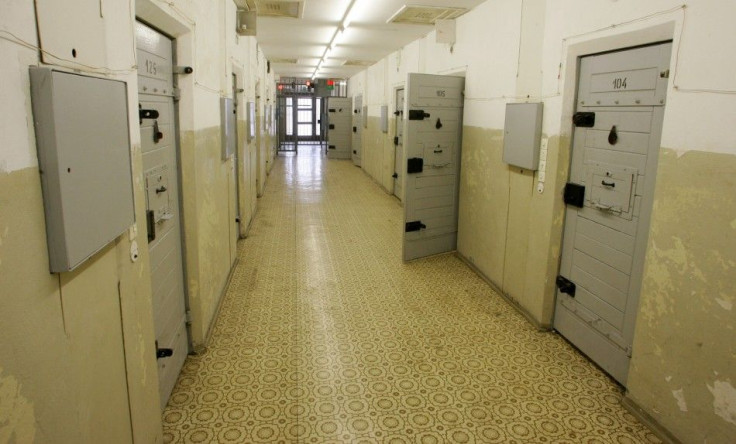Supreme Court Justices Consider Constitutionality of Strip Searches in Jails

For New Jersey resident Albert Florence, a 2005 trip to county jails after being arrested over an unpaid fine resulted in two strip searches, including one that required him to squat naked.
Florence's case against two New Jersey county jails is now before the U.S. Supreme Court, which will determine whether strip searches are constitutional when performed on those arrested for minor offenses and without suspicion that they brought in contraband.
The high court heard arguments Wednesday from attorneys representing Florence and the two New Jersey county jails he sued. The justices will weigh the security issues posed when those arrested are thrown into jails and have yet to be processed against a person's right to privacy.
You don't know who these people are, Justice Anthony M. Kennedy said, according to a USA Today report. You arrest them for traffic, and they may be some serial killer. You don't know.
Justice Sotomayor on Innocent Person Strip Search
Justice Sonia Sotomayor asked if there was something unsettling about making an innocent person go through such a strip search, according to the Los Angeles Times.
When Florence was strip searched after his arrest over the unpaid fine-one that he actually had paid off. He was taken to the Burlington County Jail and told to take his clothing off, open his mouth and lift his tongue. Then, he was told to hold out his arms, turn around and lift his genitals.
He was held at the Burlington County Jail for six days before he was transferred to Essex County Correctional Facility. There, Florence was told to strip naked, shower, open his mouth and lift his genitals. Then he was told to squat and cough. He was dismissed the following day.
A federal judge in New Jersey sided with Florence in his lawsuit against jails, finding that blanket strip searches of those arrested, without a reasonable suspicion that contraband was brought inside the jail, was unconstitutional.
However, a federal appellate court overturned that ruling, deciding that a jail's security interest at the time of intake outweigh an arrested person's privacy.
Lawyers for Florence, in his Supreme Court petition, said that his strip search was unwarranted, as his arrest was over an alleged unpaid fine, not a serious crime that could have involved drugs or weapons.
When, as in this case, none of the circumstances give rise to any reason to believe that the individual may be carrying contraband, a strip search is unreasonable and therefore unconstitutional, Florence's petition read.
The county jails' lawyer argued to the justices that jails must inspect any inmate for safety reasons and that there's no reasonable expectation of privacy in prison, according the Los Angeles Times report.
The Obama administration backed up the county jails' position.
The searches are grounded in the need to protect the safety of inmates and officers and maintain institutional security, the administration wrote in a court document filed in support of the county jails. To the extent that difficult judgment calls must be made about how to address the smuggling problem, corrections officials with the necessary expertise should make those judgments.
© Copyright IBTimes 2024. All rights reserved.











